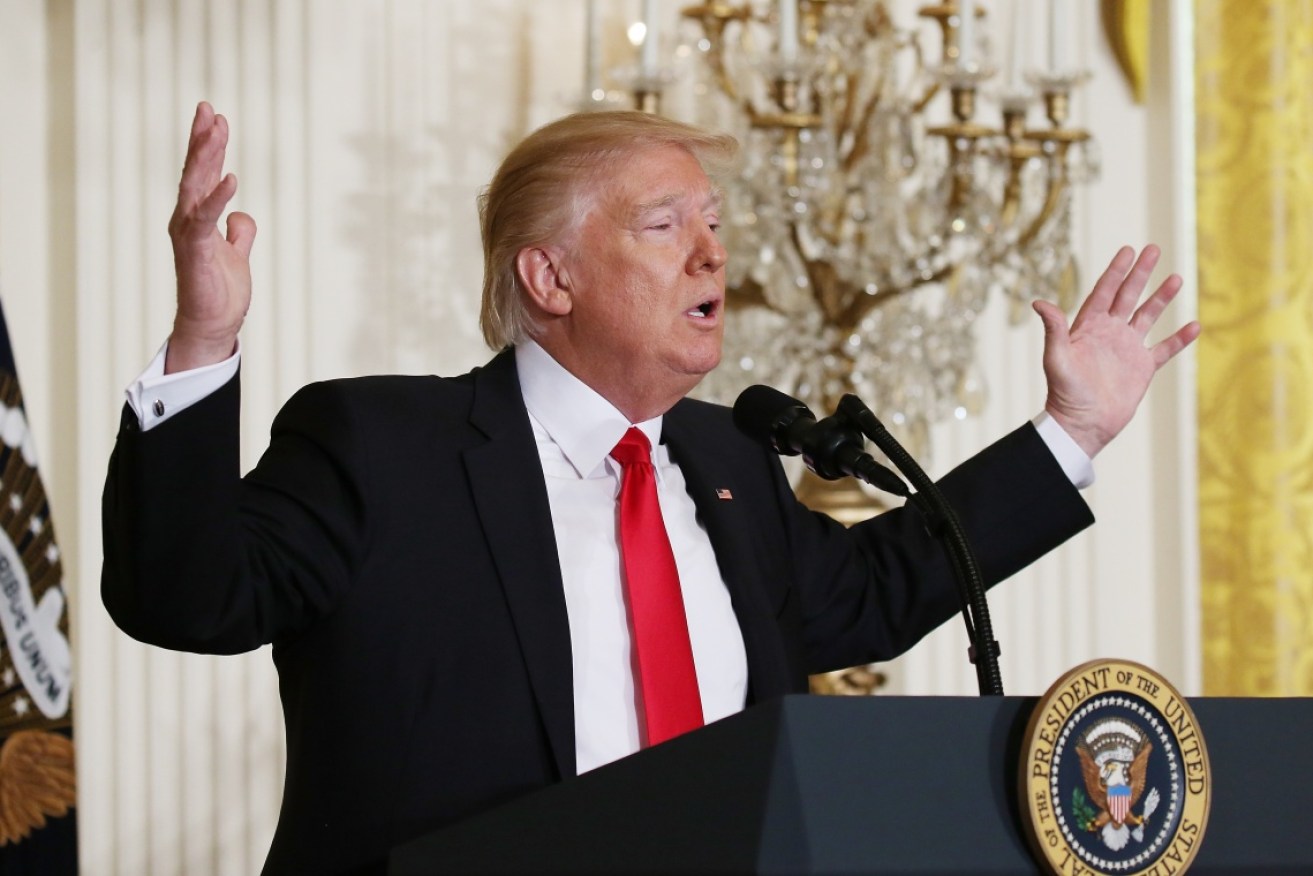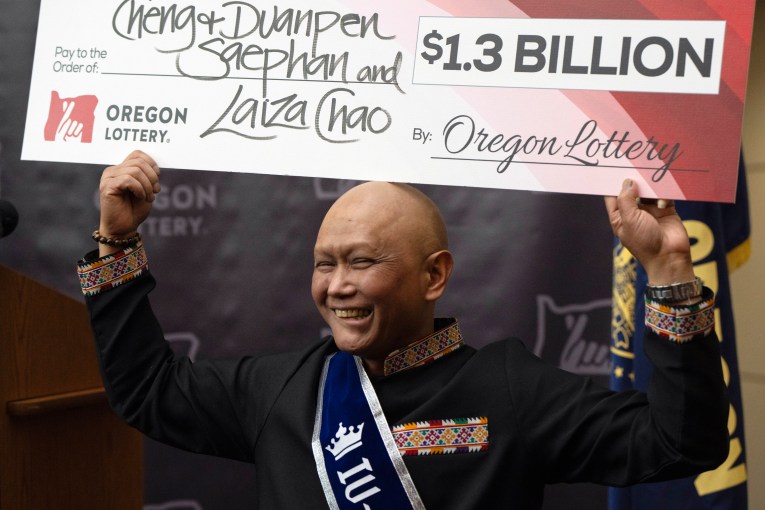Donald Trump’s Muslim ban to be implemented after Supreme Court ruling


A watered down version of Donald Trump's travel ban can go into effect. Photo: Getty
President Donald Trump’s controversial travel ban will go ahead, at least until October, after the US Supreme Court decided to review the legality of his temporary ban on citizens from six Muslim-majority countries and all refugees.
The ruling overturns earlier objections from two Federal Courts and opens the way for a slightly watered down version of the ban to be implemented almost immediately.
President Trump praised the decision Tuesday morning (AEST) in a White House statement, saying the Supreme Court’s unanimous decision was a “clear victory for our national security”.
“Today’s ruling allows me to use an important tool for protecting our Nation’s homeland,” he said.
He later tweeted: “We must keep America SAFE!”.
Very grateful for the 9-O decision from the U. S. Supreme Court. We must keep America SAFE!
— Donald J. Trump (@realDonaldTrump) June 26, 2017
The Supreme Court’s decision will allow most of the ban’s provisions to go ahead until the nine justices hear full arguments in October.
In the meantime, the court said the ban on visitors from Iran, Libya, Somalia, Sudan, Syria and Yemen can be enforced as long if those visitors lack a “credible claim of a bona fide relationship with a person or entity in the United States”.
“In practical terms, this means that EO – 2(c) may not be enforced against foreign nationals who have a credible claim of a bona fide relationship with a person or entity in the United States. All other foreign nationals are subject to the provisions of EO–2,” the Supreme Court ruling said.
President Trump said last week that the ban would take effect 72 hours after being cleared by courts.
Opponents say the ban was an unlawful based on visitors’ Muslim religion.
The administration review should be complete before October 2, the first day the justices could hear arguments in their new term.
Three of the court’s conservative justices said they would have let the complete bans take effect.
The court’s opinion outlined the kinds of relationships people from the six countries must demonstrate to obtain a US visa.
“For individuals, a close familial relationship is required,” the court said.
“For people who want to come to the United States to work or study, the relationship must be formal, documented and formed in the ordinary course, not for the purpose of evading the travel ban.”
The opinion faulted the two federal appeals courts that had blocked the travel policy for going too far to limit Trump’s authority over immigration.
The president announced the travel ban a week after he took office in January and revised it in March after setbacks in court.

Protests erupted around the US in opposition to Mr Trump’s Muslim travel ban.
The announcement was met with widespread protests at airports throughout the US.
The 4th US Circuit Court of Appeals in Richmond, Virginia, said the ban was “rooted in religious animus” toward Muslims and pointed to Trump’s campaign promise to impose a ban on Muslims entering the country as well as tweets and remarks he has made since becoming president.
The San Francisco-based 9th US Circuit Court of Appeals said the travel policy does not comply with federal immigration law, including a prohibition on nationality-based discrimination.
– With agencies








